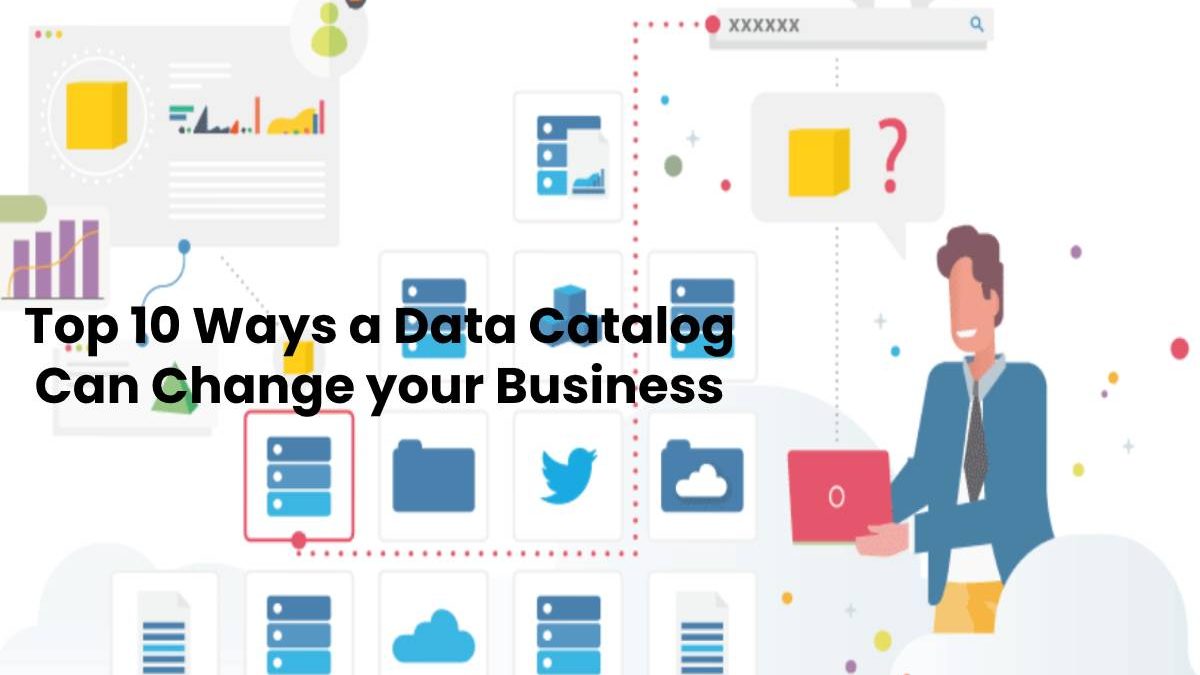Data Catalog Can Change your Business
Data catalog is a system that helps in organizing metadata on the organization’s data sources and assets. Metadata includes the basic information about the particular data. For example for a document metadata would be information like the author’s name, file size, date of creation of the document and keywords which describe the document. Data Curation help in automatic categorization, easy search and provides a broader data management platform. Organizations dealing with loads of data would be particularly benefited with data catalogs.
A data catalog is a centralized, efficient, trusted and secured inventory of all the data sets of an organization. A well managed data is crucial for any business. It helps in taking better business decisions. We have summarized the top 10 ways by which a data catalog can change your business
Table of Contents
1. Centralized source of data
The major benefit that an organization can derive from data catalog is that all its data sets are stored at one place. The data is categorized in an efficient manner and is completely safe and secure with easy accessibility.
2. Comprehensive visibility of all data sources
With data catalog you can keep track of the entire data source from a central location. All the metadata along with other information on data sources are accessible directly from a single place which can be cloud-based or on-premises.
3. Easier data management
A data curation automatically discovers and organizes the data. You can easily search and manage all the data sets and sources. Therefore if a data user wants to retrieve any information on the company’s data assets and sources then they can easily do so without the need to look for subject matter experts or data owners. And most importantly a person who is not a data expert or so much skilled can also search through a data catalog. This makes data catalog even more attractive to its users.
4. Reduced costs and time to manage and search for the data
We have stated that a data catalog categorizes the vast amount of data sets in such a way that the users can easily find the data they need. The data analysts are highly benefited since they can generate insights quickly and easily and don’t need to go through irrelevant data.
5. Institutional knowledge of the organization’s data sources is preserved
Data catalog is a vast data reservoir where the organization can keep its data sources safely. The tribal and the institutional knowledge of the organization can be preserved with data catalogs without getting lost or leaked.
6. Organizations can collect and store metadata
Organizations can store the detailed basic information regarding data in a central data reservoir i.e. data catalog. The annotation and comments can be added to enrich the data. Metadata often shows the institutional knowledge of the company so it is a valuable source of information. With data catalogs the information is both programmatically or automatically discovered and added to the centrally placed data source.
7. Use of latest technology for cataloging has increased its effectiveness
It is difficult to manage the vast amount of data sources manually. The latest machine learning technology and Artificial Intelligence (AI) are now being used to prepare data catalogs and identify trends and data usage patterns.
8. Ensures data compliance
A data catalog classifies and applies security policies around metadata. The organizations apply various data policies both internally and externally. The external policies like GDPR, HIPAA, SOX, etc. require technical and control measures to protect and manage the company’s data. The internal policies also require similar measures. A data catalog thoroughly documents and classifies the data sources and applies the necessary policies or procedures ensuring data compliance and data security.
9. Automatically updated
A data catalog is continually updated and corrected ensuring data scalability. You can trust the data for its efficiency and value thus making it easy for the companies to take their business decisions based on the information given in data catalogs.
Better data governance
The organizations can apply governance controls to various types of data sources stored centrally as data catalog. The data quality and data value is highly improved with data catalogs ensuring better decision making.

